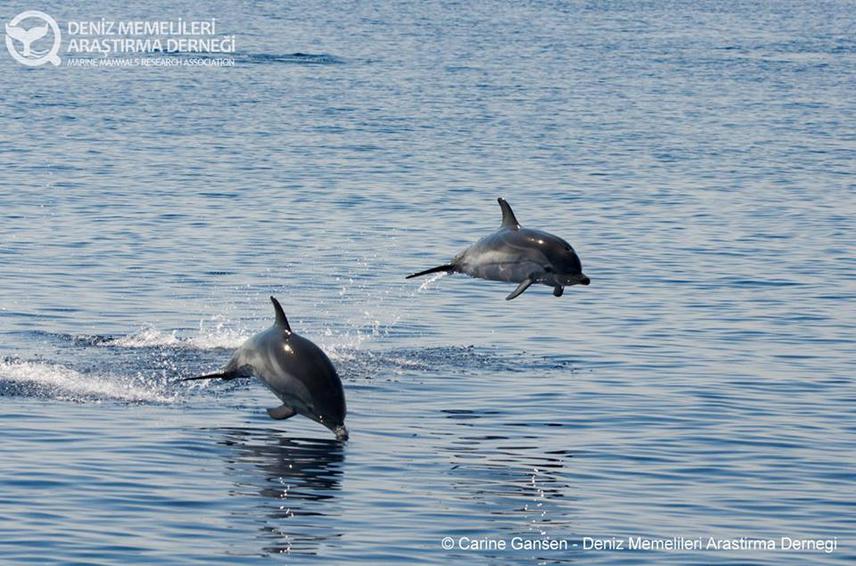Aylin Akkaya
Other projects
28 Jul 2015
Combining Research with Education for Cetacean Conservation in Fethiye-Göcek SEPA Turkey
8 Jan 2019
Advancing Knowledge from Coastal to Pelagic for "Species Conservation Action Plan of Turkey": A Tool to Prioritise Measures against Population Decline
16 Dec 2020
Using Scientific Knowledge to Strengthen Management and Conservation Strategies for Cetaceans within the Turkish Mediterranean Sea
18 Apr 2023
Long-Term Conservation of Cetaceans in the Eastern Mediterranean Sea of Turkey
Levantine Sea was pinpointed as a low cetacean biodiversity ground. Contrary, our study reported high seasonal abundance and proposed important marine mammal habitats. Increasing anthropogenic impacts highlight the necessity to adapt ecosystem based approach in hand with science and education. The project will continue collecting baseline marine mammal data while assessing marine vessel, marine litter density and investigating fishing practices in north-western Levantine. Marine mammals will be flagship species. The project provides significant information on cetacean population statues, marine vessel/litter density, fishing practices. The study will contribute to the understanding of Levantine Sea ecosystem and propose ecosystem-wide conservation strategies.

©Carine Gansen.
Marine environment around the globe is under heavy threat almost entirely due to the human pressure. Dedicated scientific surveys play an important tool on the creation of effective conservation and management strategies to mitigate the human impacts on the ecosystem. However projects focusing solely on the scientific surveys with no public involvement may lose their influence and effectiveness on the sustainable protection of target animals. For these reasons, our project leans on science and awareness raising activities with equal importance.
As a follow-up project, we extended the number of target species (cetaceans and endangered Mediterranean Monk Seals), study sites (Antalya and Fethiye Bay) and methodology (visual and acoustic surveys) and the project follows an ecosystem based approach instead of focusing on single species.
Through the project, we aim to contribute to the understanding of regional population statues of marine mammals and the level of human pressure in the form of marine traffic, fishing practices and marine litter. The effect of marine traffic on the behaviour of target species as well as species-fishery interaction will be investigated. Due to the rising concerns on marine litter in the Mediterranean Sea, marine litter composition and density data will also be assessed. Last but not least, cooperation between researchers, public (fishermen, locals, university/high school students) and decision-makers (government bodies) will be formed. Cetacean sighting network and online photo-identification website will help us to spread our word on ecosystem based conservation. By working closely with stakeholders, decision makers and future researchers, we aim to prove that sustainable livelihood is only possible with a healthy ecosystem thus to remind that we actually seek for mutual aims.